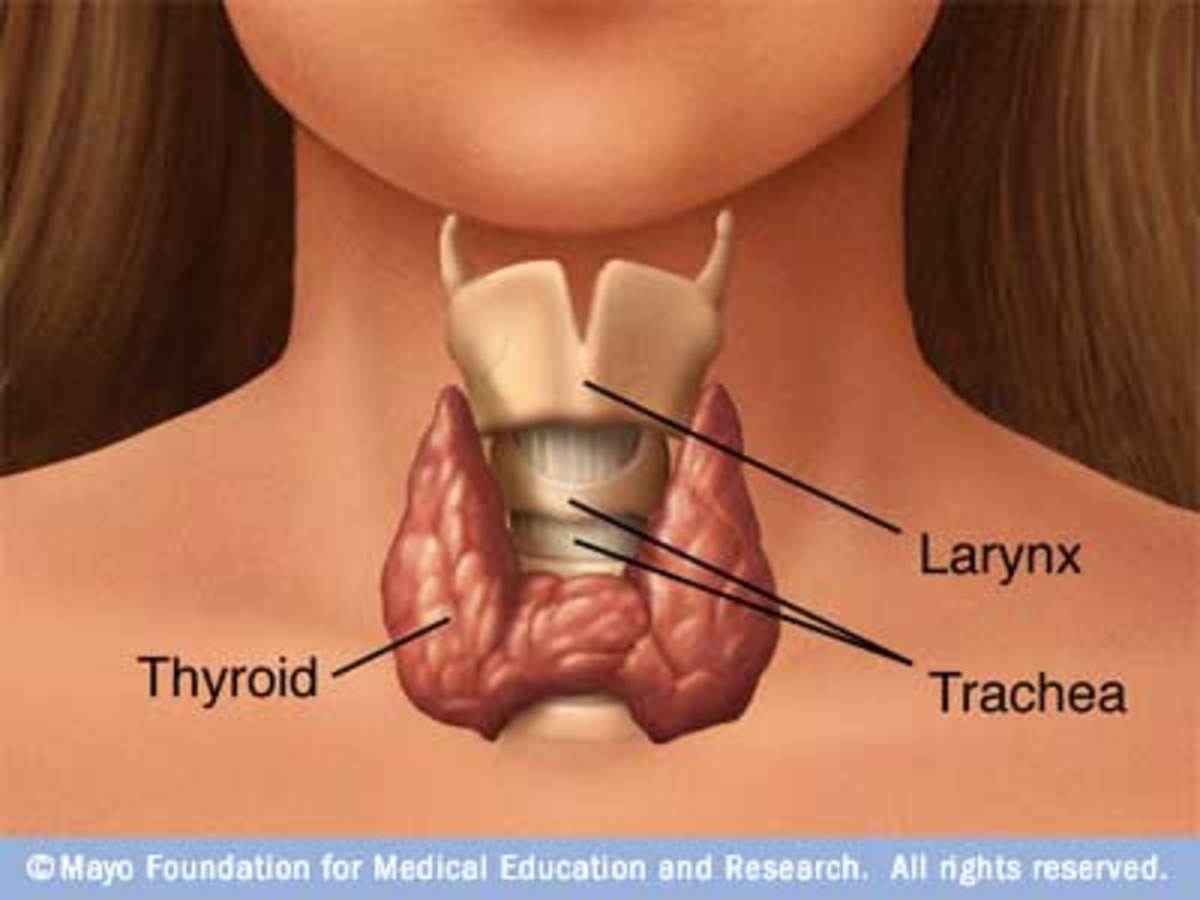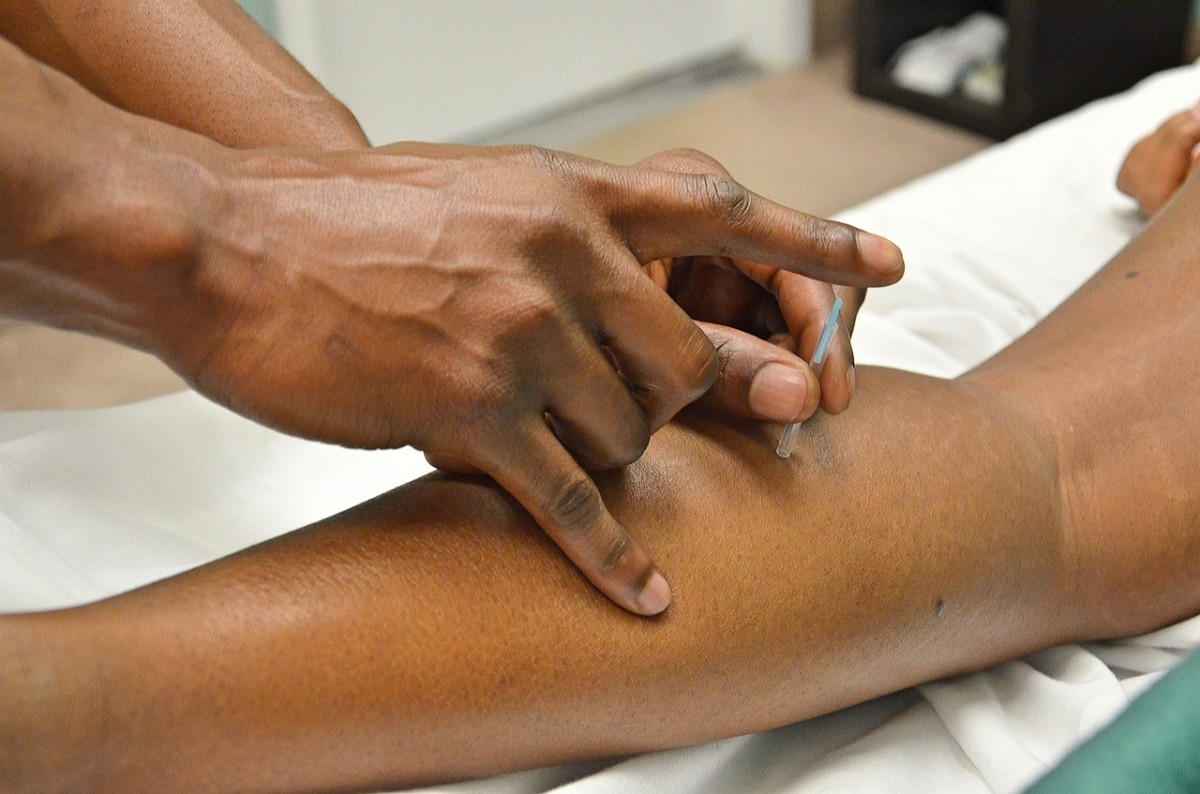Iodine Deficiency and Hypothyroidism
Many people with hypothyroidism have an iodine deficiency, and if this deficiency isn't corrected then it could have a profound impact on their health. This isn't just true with regards to their thyroid condition, but with their overall health, as a deficiency in iodine can cause a lot of different problems, some of which I'll discuss in this article. With regards to hypothyroidism, iodine deficiency can actually cause the development of a hypothyroid condition, although in many cases it isn’t the direct cause of the thyroid condition, but instead is one of the contributing factors. Either way, those looking to restore their health back to normal using a natural thyroid treatment protocol will need to address this deficiency.
Iodine has many different functions to one’s health, but it’s extremely important with regards to the thyroid gland. The reason for this is because iodine is necessary for the formation of thyroid hormone. Thus, if a person is deficient in iodine, they will be unable to produce a sufficient amount of thyroid hormone, which can ultimately lead to a hypothyroid condition.
Why Is Iodine Deficiency So Common?
According to the book “Iodine, Why You Need It, Why You Can’t Live Without It”, which was written by Dr. David Brownstein, there are several reasons why many people are deficient in iodine:
Reason #1: Poor farming techniques have led to deficiencies of iodine in the soil. As a result, many of the foods we eat are deficient in iodine.
Reason #2: Many people have reduced their intake of iodized salt due to the fear of developing high blood pressure. For some people, iodized salt is their only source of iodine. But because they are concerned about salt raising their blood pressure, many people have reduced, or in some cases, have completely eliminated using iodized salt.
Reason #3: Exposure to certain chemicals, such as fluoride, bromide, and chloride will cause an iodine deficiency. The reason for this is because these chemicals compete with iodine. For example, in the past, iodine was used as a dough conditioner, but over the last few decades it has been replaced with bromide. This is just one example of how these chemicals are a big reason behind many people becoming iodine deficient.
How To Detect An Iodine Deficiency
There are a few different methods of determining whether someone is deficient in iodine. The less accurate method is through an Iodine Patch Test, which involves using a 3% iodine tincture to paint a small square “patch” on your forearm, and then determining how long it takes for the iodine patch to disappear. Someone who isn’t deficient in iodine will have the patch remain for greater than 24 hours. If it disappears in less than 12 hours then one is supposedly severely iodine deficient. If it disappears between 12 and 24 hours then someone is mild to moderately deficient iodine deficiency.
The second method of determining an iodine deficiency is through an iodine loading test, which is a urine test which involves taking a 50 mg dosage of an iodine/iodide tablet, and then over a 24 hour period this test determines how much iodine is excreted. A person who is deficient in iodine should retain a decent amount of iodine ingested. It is suggested that any test result which shows a saturation lower than 90% means the person is deficient in iodine and is thus a candidate for iodine supplementation.
How To Correct An Iodine Deficiency
One obviously needs to consume more iodine in order to correct an iodine deficiency, but in what form should one consume iodine, and what dosage? This is up for debate, as different holistic healthcare professionals will have different opinions, but the following is the protocol I recommend for my patients, and is what I personally used to address my iodine deficiency:
After determining that a patient has an iodine deficiency, I recommend they initially take a product called Prolamine Iodine, which is manufactured by the company Standard Process. Each tablet consists of 3 mg of iodine, and I have them begin by taking one tablet daily for the first week, and then increasing the dosage by one tablet each week until they are taking about 25 mg of iodine each day. From this point on I will switch them to a product called Iodoral, which comes in higher dosages and allows them to take only a couple of tablets each day, compared with eight tablets that would be required to receive a similar dosage with the Prolamine Iodine.
Some people do need to take more than 25 mg of iodine each day, as some will require up to 50 mg daily in order to correct their iodine deficiency. The way to determine how much someone needs is through follow-up testing. This is why it’s a good idea to do a follow up iodine loading test every 2 to 3 months initially upon starting an iodine supplementation program.
In order to help with absorption of iodine it’s also important to take a sufficient amount of selenium, magnesium, and B vitamins. Eating a handful of brazil nuts daily will give you all of the selenium you need on a daily basis. As for making sure you consume enough magnesium and B vitamins, eating plenty of green, leafy vegetables daily, along with raw nuts and seeds will help with this.
Using Natural Thyroid Treatment Methods To Cure Hypothyroidism
In addition to taking iodine to help restore your health back to normal, most people with hypothyroidism have other issues which are either contributing to, or in some cases directly causing the thyroid gland to malfunction. For example, many people have weakened adrenal glands, which in turn can lead to a hypothyroid condition. A weakened immune system can also be the problem, as can a hormone imbalance. This is why anyone with hypothyroidism who is looking to cure their condition should consult with a competent natural endocrine doctor.
Such a doctor will not only look at the standard thyroid blood tests that most endocrinologists and other medical doctors look at, but will most likely recommend additional tests to determine what the cause of your condition is. And then depending on your findings, the doctor will put you on an individualized natural thyroid treatment protocol designed to restore your health back to normal, assuming this is possible of course.
Iodine Deficiency & Hashimoto’s Thyroiditis
For those people who have Hashimoto’s Thyroiditis, it is important not to supplement with iodine until you address the immune system component. If you don’t eliminate the autoimmune response, then there is an excellent chance it will worsen your symptoms by causing further destruction of the thyroid gland. Once again, it probably is a good idea to consult with a natural endocrine doctor who has a lot of experience dealing with this autoimmune thyroid condition.
In summary, iodine deficiency is extremely common, and for someone with hypothyroidism it is imperative to address this deficiency if you want any chance of curing your condition. In addition to helping with your thyroid disorder, correcting an iodine deficiency will also help prevent other health conditions from developing in the future.
For more information on how to treat hypothyroidism and Hashimoto's Thyroiditis through natural treatment methods, please visit my facebook fan page, Natural Solutions for Graves Disease and Hashimoto's Thyroiditis at www.facebook.com/NaturalThyroidTreatment





